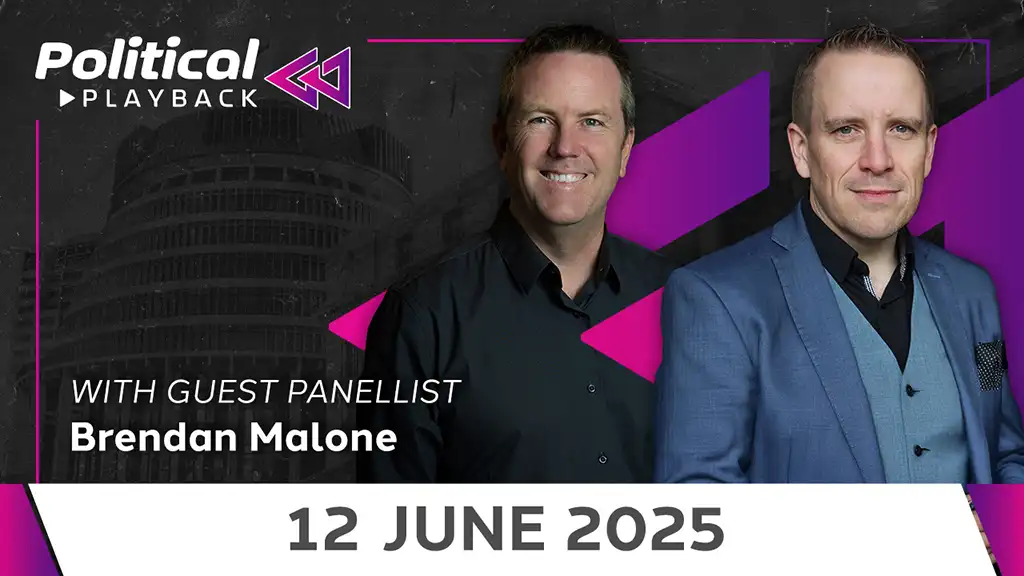In this episode of Political Playback, Bob & Simon discuss the following issues from the past week – Simon’s cancellation to speak on the Israel issue at a university; Chris Hipkins blames the (Tory) media for falling ram-raid occurrences; are school lunches now all AOK?; NZ First proposes a ban on all woke flags; are Youth MPs being censored?; school attendance rates are still abysmal; a Green MP wants to take down ‘coloniser’ statues – but is she also opposed to the Buddhist one?; the Government goes tough on crime – but is it; and the media are congratulated for labelling an unborn child as human.
Show summary auto-generated by Descript app:
In this episode of Political Playback, Bob and Simon begin by discussing Simon’s recent speaking engagement at a university which was cancelled – and the likely reasons. Have we lost the ability to have civil debates without threat of disruption or upset?
Chris Hipkins has blamed the decline in ram raids on “Tory-owned media”(referring to the NZ Herald and Newstalk ZB owned by NZME) despite the fact that the decline in ram raids has also been reported by other media not owned by NZME – including Radio NZ.
The media has turned their attention to lunches in schools despite the performance of the programme significantly improving. Bob and Simon highlight how media outlets manipulate statistics and narratives to further their agendas. A recent controversy surrounding boot camps is also used as the prime example, arguing against using single incidents to judge the efficacy of entire systems. They compare this to the absurdity of shutting down schools if students misbehave or closing Parliament over an MP’s scandal.
NZ First has proposed a bill to ban ‘woke’ flags from government buildings. Simon explains that the bill, while unlikely to pass, serves as a signal to New Zealand First supporters who are concerned about cultural and political ideologies taking over public spaces. They debate the implications of flying various flags, questioning who gets to decide what counts as politically motivated or divisive symbols.
The Youth Parliament has had conflicting claims of censorship among Youth MPs. The Ministry for Youth is said to provide guidance to ensure a respectful parliamentary experience, which some interpret as censorship. There are references to the radical and anarchistic behaviours exhibited by some political party members that might be influencing the younger participants. Simon notes that such behaviours detract from the intended positive experience of Youth Parliament, further complicating the discussion on guidance versus censorship.
There are disturbing school truancy statistics, revealing a 71% daily attendance rate, which data shows has not improved post-COVID. The alarming rates of absenteeism among Pacifica and Maori communities are particularly highlighted. Simon posits that the issue reflects a deeper cultural problem, mentioning how some parents might not value education enough to ensure their children attend school. He suggests harsher penalties, including significant fines, for parents whose children are persistently truant.
Green Party MP Tamatha Paul has a controversial proposal to remove colonial statues in Wellington due to their representation of ‘thieving criminal colonisers.’ The hosts argue that removing such statues is part of a broader, more sinister agenda to erase aspects of New Zealand’s history. Simon warns that this could lead to the abolishment of colonial institutions and eventually target certain groups as non-New Zealand, labelling her actions as fundamentally racist.
The discussion briefly touches on a large Buddhist statue being constructed in a rural Waiwera valley, raising questions of whether it was treated as an artwork or a place of worship. Bob and Simon discuss the complexities of ensuring proper consultation with neighbouring residents and the societal integration of different religious symbols.
An article by mainstream media criticises National, Act, and New Zealand First for using aggressive language and CAPS in social media posts, but Bob and Simon dismiss it as jealousy over the success of alternative social media. They argue that using bold language and alliteration in titles is a standard practice for garnering attention, not exclusive to any particular side of the political spectrum.
The episode wraps up with lighter topics, including an update on a café in Whanganui that was initially ordered to take down a John 3:16 sign and an Advertising Standards Authority decision to pull a Warehouse ad over claims it condemned little girls.



